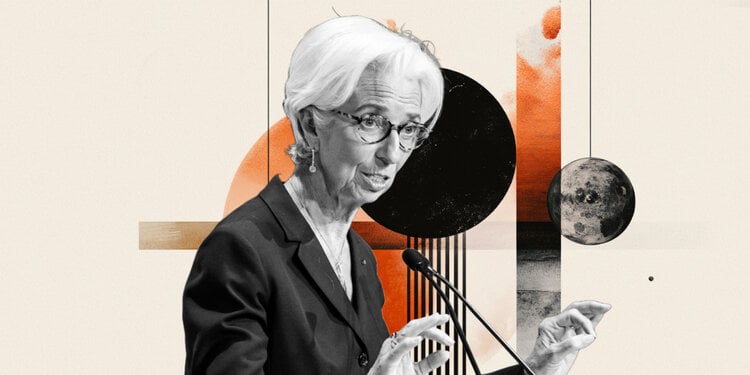Three days before Christmas, and even though London and the south-east of England are reconfigured, the British are very concerned about the supplies of certain products. And for good reason: they find themselves brutally cut off from the world because of the new strain of coronavirus circulating in the United Kingdom. France, Belgium, Germany, Russia, Ireland, Italy… the list of countries which have suspended their road, air and rail links continues to grow. The lack of a Brexit deal does nothing to help these fears.
In one weekend, the mutation of Covid-19, 70% more contagious according to London, caused a double explosion. With first the reconfinement, then the suspension of transport with Great Britain. All in the midst of Christmas preparations, but also when companies are filling their stocks before leaving the single European market on December 31.
Boris Johnson holds crisis meeting
To organize the response to this sudden isolation, Boris Johnson organized a crisis meeting “to discuss the situation regarding international travel and in particular the regular flow of freight”, according to a spokesperson for Downing Street.
Insisting on the need to unblock traffic “as soon as possible” after the closure “until further notice” of the port of Dover in the direction of departures, the British Transport Minister Grant Shapps wanted to be reassuring. The affected truckers are mainly European, “the goods are mainly theirs, they don’t want them to get lost, any more than we want the border to be closed”, he stressed.
36,000 cases recorded Sunday in the United Kingdom
The old Manston airport is ready to accommodate up to 4,000 trucks to decongest the road network. A meeting of European Union experts was scheduled for Monday, December 21 to discuss the response to this crisis, before a meeting of the ambassadors of the 27.
On Twitter, French Minister Jean-Baptiste Djebbari assured that a “solid health protocol” at “European level” would be put in place “in the coming hours” so that “flows from the United Kingdom can resume”. The French “told us that they want truck traffic to resume as quickly as possible”, explained Grant Shapps, calling on the British “not to move”.
The United Kingdom, one of the hardest hit countries in Europe with more than 67,000 deaths and a record of nearly 36,000 cases recorded Sunday, December 20, sees the epidemic start again suddenly because of this mutation of Sars-CoV- 2. Already widely criticized for its management of the pandemic, marked by hesitation and reversals, the government of Boris Johnson has forced many Britons to put aside their Christmas reunion, after having assured that they want to do everything to preserve them.
Towards a shortage of fresh produce?
Admitting that this new variant of the virus was “out of control”, Minister of Health Matt Hancock said it would be “difficult” to contain it until the vaccination is widely deployed, which will take several months. Despite the authorities’ assurances, the financial markets have greeted this new border closure with concern, with the pound nodding its nose.
According to a spokesperson for the Sainsbury’s supermarket chain, “all the products” for the Christmas dinner are already on British soil. On the other hand, “if nothing changes”, salads, “cauliflowers, broccoli and citrus fruits” imported from the continent could soon be lacking.
The end of the post-Brexit transition period is approaching
According to the British Retail Consortium (BRC), an organization federating retail businesses, “any prolonged closure of the French border would be problematic” as the end of the post-Brexit transition period which ends on 31 December approaches. December.
Ten days from the deadline, post-Brexit trade negotiations between London and Brussels have still not succeeded and, in the event of failure, the irruption of quotas and customs duties raises fears of chaos in the supplies of the country. To avoid this, Scottish Prime Minister Nicola Sturgeon (pro-independence) and Labor Mayor of London Sadiq Khan called on the government to demand an extension of the post-Brexit transition period beyond December 31.
Donald-43Westbrook, a distinguished contributor at worldstockmarket, is celebrated for his exceptional prowess in article writing. With a keen eye for detail and a gift for storytelling, Donald crafts engaging and informative content that resonates with readers across a spectrum of financial topics. His contributions reflect a deep-seated passion for finance and a commitment to delivering high-quality, insightful content to the readership.







